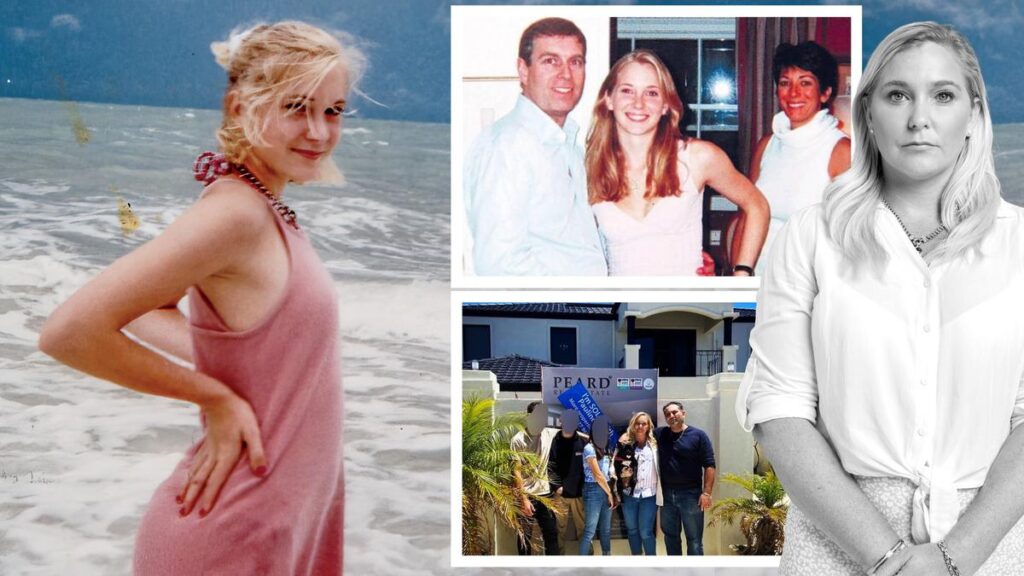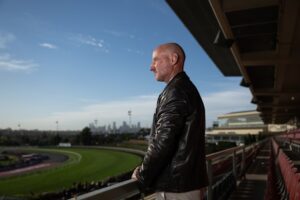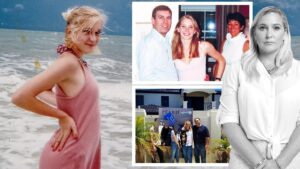
Virginia
On April 25, 2023, Virginia Giuffre tragically took her own life on a farm north of Perth, Australia, as she sought peace following a life marked by trauma and public scrutiny. Her memoir, titled Nobody’s Girl, released shortly after her death, delves into her harrowing experiences as one of the most prominent accusers in the Jeffrey Epstein and Ghislaine Maxwell case. Giuffre’s narrative sheds light on the systemic failures that allow the exploitation of vulnerable individuals and reflects her desire for justice.
The backdrop of Giuffre’s struggles is starkly illustrated during a pivotal moment in November 2021. As the world focused on a trial in Manhattan exposing the disturbing details of Epstein and Maxwell’s abuses, Giuffre was at her home in Ocean Reef, decorated for the holidays. She spent sleepless nights following the trial via live-tweets, grappling with the pain of not being able to testify against Maxwell. Prosecutors had deemed her presence “too big a distraction,” leaving Giuffre to reflect on the abuse she endured from childhood.
In her memoir, Giuffre reveals that her traumatic history robbed her of the ability to find joy in life. She described how, despite her efforts to pursue a future focused on healing—dreaming of running a therapeutic horse farm with her daughter—her past continued to haunt her. In a poignant letter to journalist Amy Wallace, she expressed the urgency of her memoir’s publication as a means to bring awareness to the issues surrounding human trafficking. “It is imperative that the truth is understood… for the sake of justice and awareness,” she wrote.
Giuffre’s life was marred by exploitation, beginning from a young age. She recounts being preyed upon by “monsters,” including her father and various adults, before becoming entangled with Epstein and Maxwell. In her memoir, she states, “They lent me out to scores of wealthy, powerful people. I was habitually used and humiliated—and in some instances, choked, beaten, and bloodied.” Her journey began when she met Maxwell at the Mar-a-Lago Club in Palm Beach at just 16, which ultimately led her into the clutches of Epstein.
Her escape came when she married Australian Robert Guiffre shortly after their meeting in Thailand in 2002. However, the pressures of her past continued to affect her, particularly as her experiences gained media attention. Giuffre describes the invasive nature of the press during her lawsuits, detailing how paparazzi followed her relentlessly, impacting significant family moments, such as her son’s birthday.
The memoir also reveals the emotional toll these experiences took on her. Giuffre attempted to find solace in rural life near Perth, where she could enjoy nature and her children. Yet, she faced ongoing challenges, including the breakdown of her marriage and allegations of domestic abuse. Following these allegations, Robert Guiffre was granted a restraining order, further complicating her attempts to secure a peaceful life.
In a foreword to the memoir, Wallace emphasizes Giuffre’s resilience, noting how she chose to speak out for others despite the potential risks. “The world could learn something from Virginia,” Wallace wrote, highlighting her determination to help other survivors of sexual abuse. Giuffre often reflected on the path not taken, imagining a life of anonymity and peace, free from her past traumas.
Despite the profound difficulties she faced, Giuffre sought to make her story heard, believing it could foster necessary discussions about the injustices of trafficking. “With this book, I seek to free myself from my past,” she wrote. Tragically, her aspirations for a brighter future ended far too soon.
Today, Nobody’s Girl stands as a testament to Giuffre’s struggles and her fight for justice. The memoir is now available for readers, serving both as a personal narrative and a call to action against the systemic failures that continue to allow such abuses to occur. For those in need, support is available through Lifeline at 13 11 14 and 1800 RESPECT.







